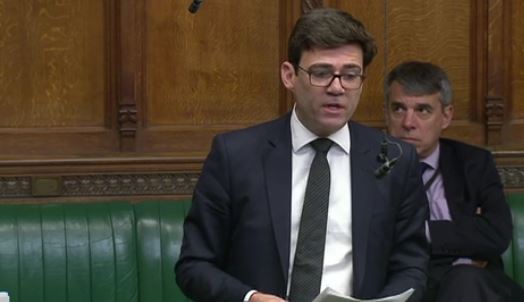Call for inquiry into NHS contaminated blood scandal

Former health secretary Andy Burnham has called for an inquiry into the National Health Service’s use of contaminated blood products in the 1970s and 1980s.
More than 2,000 deaths have been linked to treatment of haemophilia patients with imported blood products contaminated with hepatitis C and HIV.
Burnham told the House of Commons in an adjournment debate that victims were “guinea pigs” – but health minister Nicola Blackwood resisted calls for a fresh inquiry.
He described the scandal as a "criminal cover-up on an industrial scale".
Blackwood said two reviews had already been carried out, while in 2015 former prime minister David Cameron apologised to the thousands of victims of the scandal.
Back then a parliamentary report found around 7,500 patients were treated with infected blood products.
The UK imported supplies of clotting agent Factor VIII – but some of this was infected. The BBC reported that much of the plasma used to make the treatment came from donors like US prison inmates, who sold their blood.
Burnham called for a public inquiry, similar to the one into the deaths at the Hillsborough football stadium in 1989. This led to an inquest ruling last year that 96 victims of the tragedy had been unlawfully killed.
He said patients had been given inappropriate treatments, tests had been done without patients’ knowledge or consent, and results had been withheld for several years.
These were “criminal acts”, according to Burnham, who said he will take his claims to the police if a new inquiry is not established before Parliament breaks for its summer recess in July.
Last year the government consulted on the money available to those affected by the scandal. Those with stage 1 hepatitis C would receive £3,500 a year, although this could rise on appeal to around £15,000 paid to HIV patients who received infected blood.
Bereaved partners or spouses of infected patients from NHS-supplied blood products will also receive payments.
This was Burnham’s final speech in the House of Commons after announcing he will not stand in the upcoming general election in the Leigh constituency, as he is instead seeking to become Manchester's first ever elected mayor on 4 May.











